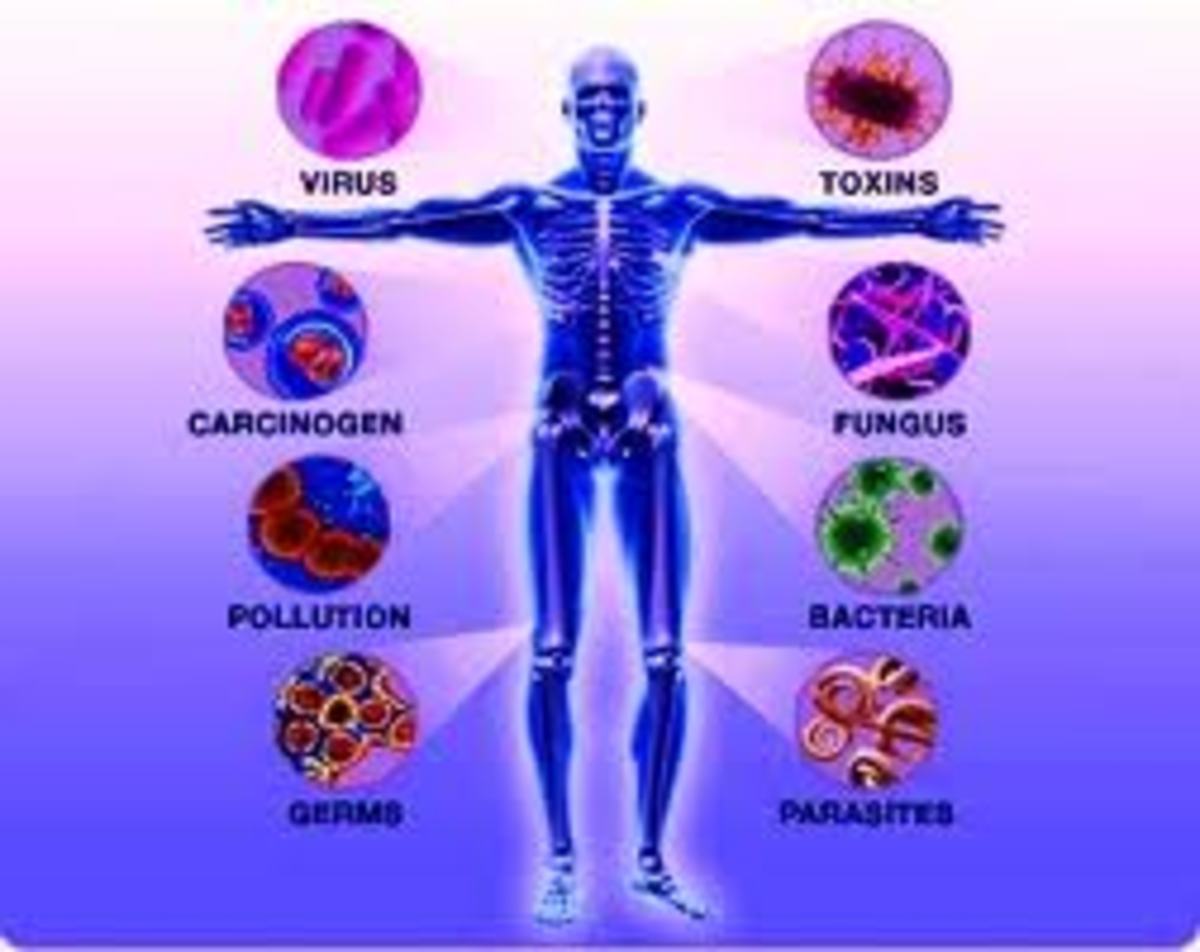Defend and Repair - Immune System to the Rescue
Immune System vs Superbugs

It is estimated that drug-resistant bacterias or “superbugs” currently kill 700 thousand worldwide. "Superbugs" is a term used to describe strains of bacteria that are resistant to the majority of antibiotics commonly used today. A study by the UK government found that unless action is taken, superbugs are projected to kill an extra 10 million people annually worldwide by 2050. This will be more than those caused by cancer.
Deaths attributed to antimicrobial resistance annually by 2050
Continent
| Number of deaths ('000)
|
|---|---|
Asia
| 4,730
|
Oceania
| 22
|
Africa
| 4,150
|
Europe
| 390
|
North America
| 317
|
Latin America
| 392
|
Source: Review on Antimicrobial Resistance 2014
Defence and repair functions
Diseases arising from such superbugs, together with leading causes of premature death i.e. cancer, cardiovascular diseases and diabetes, can be avoided by a strong immune system, according to some conventional and alternative medical experts. They advocate for a strong immune system not only as a strong defence for diseases but the key to rejuvenating the mind, body and spirit.
Our immune system functions both as defence and repair. Apparently, no parts of our body, particularly our bones, are more than 10 years old; major blood vessels and joints turn over every 7 years and most other parts are only a few months old. When the immune system is preoccupied with defence, its repair function is deferred.
Diseases arising from superbugs, together with leading causes of premature death can be avoided by a strong immune system
Sources of immune health
Therefore, if we can detect the defence triggers placing excessive burden on our immune system and identify sources for immune health, we can help ourselves to stay healthy:
1. Sleep
Sleep plays an important function e.g. for healing and repair of heart and blood vessels. As we sleep, our adrenalin level drops and serotonin is released. Serotonin impacts every part of the body, from emotions to motor skills. It is considered a natural mood stabilizer that helps with sleeping, eating, and digesting. It also helps to reduce depression, regulate anxiety, heal wounds, maintain bone health. When there’s lack of serotonin due to lack of sleep, coupled with digestive problems, the immune system is undermined i.e. its repair function is deferred.
2. Food
We should feed our bodies with nutrients from high quality food and avoid processed food. For example, processed sugar is shown to feed cancer cells. Many are choosing to eat organic, but our soil is becoming depleted and apparently contain less nutrients and minerals. Therefore we may wish to supplement our diet with quality, safe supplements. Minerals and other antii-oxidants are required to neutralize toxins but require robust health to produce such anti-toxin properties.

3. Gut health
Recent studies have found that most of the bacterias reaponsible for immuine health are found in a "pocket" of our large intestine, called the gut microbiome (collection of bacteria, viruses, fungi and other microscopic living things existing inside our intestines and skin). The microbiome can also affect gut health and may play a role in intestinal diseases like irritable bowel syndrome.
Certain healthy bacteria in the microbiome, however, are essential to gut health. There are many ways to improve gut microbiome e.g. eating a diverse range of foods including fermented foods (yogurt, sauerkraut, kefir), whole grains, foods rich in polyphenols (green tea, dark chocolate, olive oil, whole grains), taking probiotics and avoid antibiotics unless it’s necessary.
Some researches have found connection between gut health and mental health. It is thought that any disruption to the normal balance of bacteria in the microbiome can cause the immune system to overreact, leading to diseases not only throughout the body, but also in the brain.
Some researches have found connection between gut health and mental health
4. Stress management
It’s well known tat both mental and emotional stress can suppress the immune system and elevate blood sugar and cortisol (body’s main stress hormone that regulates a wide range of processes throughout the body, including metabolism and the immune system).
Cortisol is said to be public health enemy number one; it’s widely known that elevated levels interfere with learning and memory, lower bone density, increase weight gain, blood pressure, cholesterol, heart disease and the list goes on. There’re many ways to manage stress e.g. by quality sleep, aromatherapy, yoga, getting some sunlight, having a grateful mindset, even by chewing more when eating. Instead of being overwhelmed, just focus on the next thing.

Championing immune health
Our body is equipped with anti-bacteria and repair capabilities. Conventional methods, on the other hand, focus mainly on symptoms suppression and many side effects cannot be avoided; sometimes the very medicines prescribed as cures end up causing new problems. We owe it to ourselves to consider safer, longer term solutions. Take care of our immune system and it will look after our health.
This content is accurate and true to the best of the author’s knowledge and is not meant to substitute for formal and individualized advice from a qualified professional.
© 2019 CC Leau








